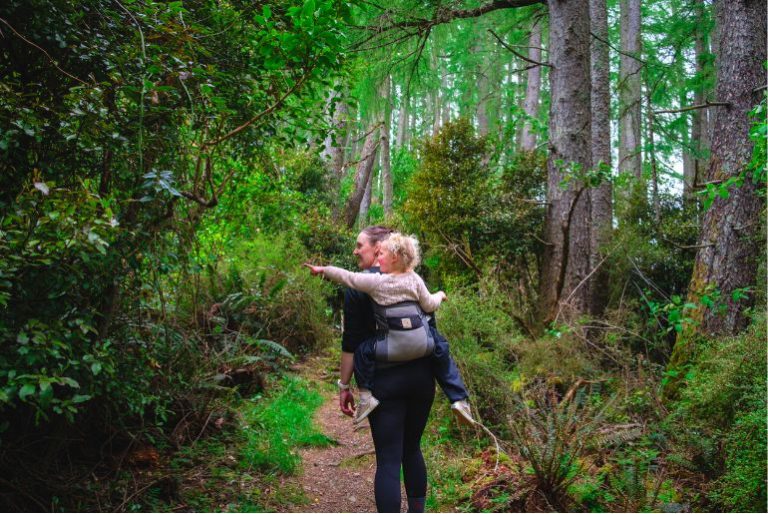Kiwi Families asked me to contribute reflections on wellness, coming from both my professional and personal viewpoints. I’m a family counsellor and solo Mother. Some of you may have read my articles from when my son was a toddler. He’s now a strapping (and handsome!) 15 year old. This article is all about how your stress affects your kids, or the Hierarchy of Wellness. First, lets have a closer look at what stress is.
I believe we are largely susceptible to common illnesses when under stress, so what happens in our bodies when we experience stress?
Neural fibres in our sympathetic nervous system descend from the brain into both primary (bone marrow and thymus) and secondary (spleen and lymph nodes) lymphoid tissues (Felten & Felten, 1994). These fibres can release a wide variety of substances that influence immune responses by binding to receptors on white blood cells, (Suzanne C. Segerstrom and Gregory E. Miller, 2004).

Fight or flight
We know there’s ‘good stress’, when a life challenge activates us to rise to the occasion. Then there’s ‘bad stress’, which is characterised by chronic worry about something that’s often out of our control.
Our bodies were wired to fight, flee or freeze when faced with immediate, real danger. Something like an invading tribe or coming face to face with a fierce tiger. In the modern world, danger takes the form of something much more subtle. It could be a troublesome colleague, a nasty manager, or impending unemployment.
Our nervous and immune systems evolved from more immediate dangers than these, which means we’re not well equipped to deal with them. You could try freezing in the corner, or running from the building screaming the next time your manager has a go at you. But it probably wouldn’t help.
Stress and family wellness
When it comes to family wellness, there’s physical, emotional, and spiritual wellness, and they’re interwoven. And when life is balanced, our immune system is better equipped to fight off infection.
For me, balance means I’m looking after myself physically, have authentic, affirming relationships with others, and feel connected to life as a whole. I access connection through nature, dance and gardening. When I’m balanced, I can stay well, plus I respond in a more measured way to my child and partner! When I provide myself with emotional, physical and spiritual support, I can enjoy health in all those areas.
Robert Sapolsky, professor of biology and neuroscience at Stanford University, says:
Stress-related disease emerges… [because] we so often activate a physiological system evolved for responding to acute physical emergencies, but we turn it on for months on end, worrying about mortgages, relationships, and promotions.
(From Why Zebras Don’t Get Ulcers: A Guide to Stress, Stress-Related Illnesses, and Coping. I highly recommend Sapolsky’s The Trouble with Testosterone too informative and funny!)
The answer to turning bad stress into good: find a way to be proactive and take control rather than be the victim.
It could be something like a suggestion to your boss that you find some time to talk through how to work more productively together, even if it means bringing in a third person to help mediate. Or, when coping with a family member whose pushing your buttons, you can bring your blood pressure down by breathing deeply, then become curious as to what’s motivating their behaviour that’s annoying you.
The Hierarchy of Wellness: How those we look after depend on us looking after ourselves
Children are much better equipped to stay well under stress when their parent(s) are managing their own health.
Parents can best manage their health when they have support from each other (if co-parenting) and the outside community. This includes access to a liveable wage, adequate housing, and friends, family and supportive people who can share the load.
Aside from asking for help, what can you do to manage your own stress this winter:
1. Reduce your expectations and goals during winter. All plants and animals slow down or go dormant during winter. We try and trick ourselves that the seasons don’t affect us, but they do. We’re healthier when we attune ourselves to the light and temperature.
2. Accepting winter’s limitations beats the winter blues. Do less, sleep and relax more!
3. Make a list of tasks that you can take off your list of tasks!
4. Pay attention to early warning signals of tiredness in yourself before you get sick. You’ll save more time going to bed early and warding off a cold, than staying up late to finish the paperwork and laying in bed sick for a week.
5. Kiecolt-Glaser & Glaser found some people manage stress by engaging in behaviours – such as drinking alcohol or sleeping poorly – that impact on a healthy immune system. So find healthy ways to cope with stress, like dancing, music or being in nature.
6. When you notice yourself thinking or saying others aren’t helping enough, e.g. ‘My ex said he’d take Johnny to football but he always has an excuse’, or ‘I helped out my sister last week when her kid was sick but she’s nowhere to be seen when mine is’, use it as a signal that you’re tired and need self-care. You’re the best person to look after yourself. Others can help, but you’re the expert on self-care. We waste energy in resentment. Look at the people around you who follow through with commitments and invest your energy with them.
So now that you know how your stress affects your kids: The hierarchy of wellness, it’s time to get proactive at keeping yourself well, for you and your children. For more great tips on looking after yourself, and keeping well, check out 3 steps to rediscovering yourself and You – yes YOU – are a successful Mummy.





![How to Make a Rice Heat Pad or Wheat Bag [2 Ways] How to Make a Wheat Bag-Sewing Version](https://www.kiwifamilies.co.nz/wp-content/uploads/2014/07/How-to-Make-a-Wheat-Bag-Sewing-Version-768x510.jpg)